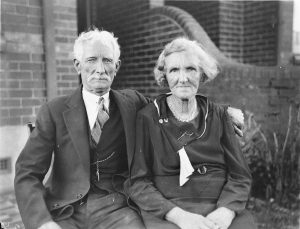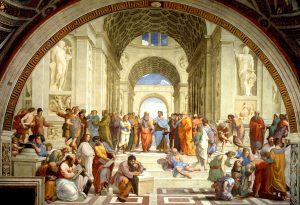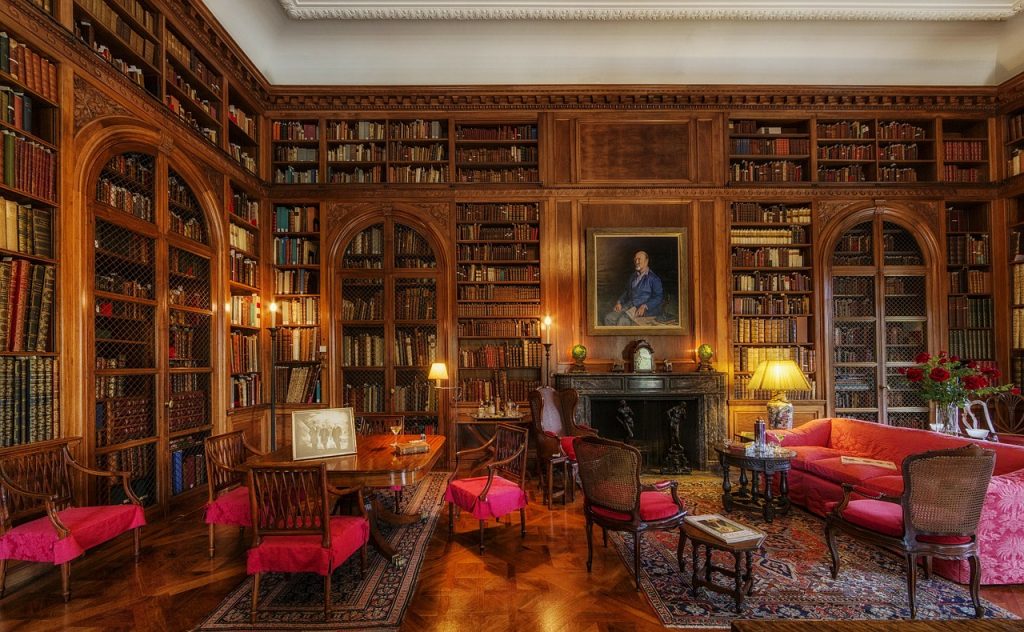Culture and meaning
While the first 3 pillars of a good life apply to everyone in a similar way, pillar 4 becomes very individual.
You can neither lengthen nor widen your life, but deepen it.
Let’s keep what we’ve discussed so far. Everyone needs a reasonably well-functioning body to live the good life. For the good life, everyone needs a network of relationships with which they can also share this life. Everyone needs a vocation or activity, ideally with a simultaneous source of income if resources – as with almost all people – are not sufficiently available.

When it comes to sense and culture, opinions are now divided. Depending on our character and type, genes and experiences, we all strive in a certain direction – but not all in the same way. It is crucial that we go in one direction at all, because the personal meaning of life is what makes us strong, persistent and helps us through major crises.
Culture and meaning bring joie de vivre
Together with culture, meaning also ensures joie de vivre, this hodgepodge of positive feelings and thoughts. The reason why meaning and culture are mentioned in the same breath here is simply due to the fact that the “question about meaning” is already a cultural event and your personal meaning – is culture!
Culture is what people create themselves. This includes not only the classics such as music, literature and art, but also technology, business, law and morals. Cultural achievements are also farming, cooking, distilling, alloying, canning, programming, we could go on for hours.
The meaning of life of a person is almost always the maintenance and optimization of an existing cultural achievement for the general.
Australian nurse Bronnie Ware, who has long worked in palliative care, wrote a remarkable book. She collected testimonies from dying people about what these people regret most at the end of their lives.

The most common regret of the dying was regret at not having lived the life they had dreamed of. The tenor has always been that instead of striving for their own goals, they often had to meet other people’s expectations.
To put it bluntly, isn’t that nice proof of our thesis on the fourth pillar of the good life? What can we deduce from this?
Without making myself guilty of blasphemy, I would like to say very clearly: it is too late when a dying person repents! I am also convinced that all the dying people who were interviewed at the time, and probably those who have died now, would agree if I were to exclaim aloud: “We can practice repentance today and not just before we die! Because today we can still do something.”
There is one more thing we can do today.
But the desire for personal happiness is not enough. To draw meaning and culture into your life, to live the good life, to be happy, you must act. That is entirely in the hands of each individual. In theory, as always, it’s easy.
- Sit down.
- Think.
- Decide.
- Write it down.
- Convert
So let’s take another sheet of paper and write as a headline:
This is the meaning of my life.

In practice, there are probably many reasons why you don’t invest that much time in your personal favorite culture.
Reduced to the essentials, there can only be two reasons:
- You do not yet have patronage over your time
- You don’t know the meaning of your life yet
To 1) Since repetition is the core of learning, I mention here again, as in many other blog articles, the patronage over time is the crucial factor of the good life. Only when your time is filled with the content YOU want are you on the right track. If you don’t know the text by heart yet, read the article “Let’s talk about the good life” what it has to do with freedom and resources.
On 2) The more culture a person consumes, the broader his horizon becomes, and the richer the personal pool from which to draw. Figuratively speaking: if you only know white and black, you should also get to know red, blue and yellow. All other colors can be mixed from these primary colors, which cannot be achieved by mixing colors.

Our senses are like primary colors from which everything else can be mixed. Seeing becomes reading, seeing and feeling becomes writing and painting, seeing and feeling and hearing becomes music and recitation.
The finer we develop our senses, the more precisely we will find the meaning of our life.
Fully automatic. But it takes time.
According to Statista and Eurostat, the daily TV consumption of Europeans from the age of 3 is several hours, the daily “consumption” of social media strong> platforms several hours. Formulated in prose in a completely value-neutral manner: time would basically be available statistically.
If someone wanted to change their output, the input would have to be changed.
This brings us to the closing argument.
Culture gives meaning to our lives.
Culture in all its diversity enriches us, gives joy of life, experiences and skills. Baking bread, exploring the endlessly wide sandy beaches of South Africa on horseback, using the updrafts in the Alps with a glider, letting your eyes wander on a summit thousands of meters high, facing the sun in the open sea and the wind in your sails, with a 40 -Tonner at night on the freeway and Dire Straits on the radio, volunteering for the rescue or fire brigade or teaching, making music, handicrafts.

At some point you particularly enjoy and particularly often do something. You’ll notice that when you don’t enjoy scrolling for hours on Facebook, Pinterest or Instagram as much as dealing with this “something”.
Now you are already very close to your “meaning”. The desire to get even closer to one’s meaning, to have more time for it, often gives the necessary and decisive energy for the next steps. This energy is also necessary, because freedom and sovereignty over your time can only be achieved through independence. And it doesn’t come by itself!
Yes, I repeat myself! But instead of raising your eyebrows, you should read the article again if you have the time. Unless you spend time with your “sense”. That would be alright. But if you don’t have time because you’re not free, you can’t decide about your own time, you should really think about why that is.
Remember, few people would continue their lives as they are if they had enough resources and didn’t have to spend time looking after resources.
If you would like a little help with self-discovery, you can find it in the article “Self-discovery – then I’ll know what I want”
If you gYou know exactly what you want, but you lack the resources, you can find suggestions in the article: “The Good Life” and “Financial Independence”
Never give up!
Greetings from sunny Italy
Bergwolf
The 4 essential pillars of a good life – Part 1: Body
The 4 essential pillars of a good life – Part 2: Relationships
The 4 indispensable pillars of a good life – Part 3: Vocation
The 4 essential pillars of a good life – Part 4: Culture and meaning

